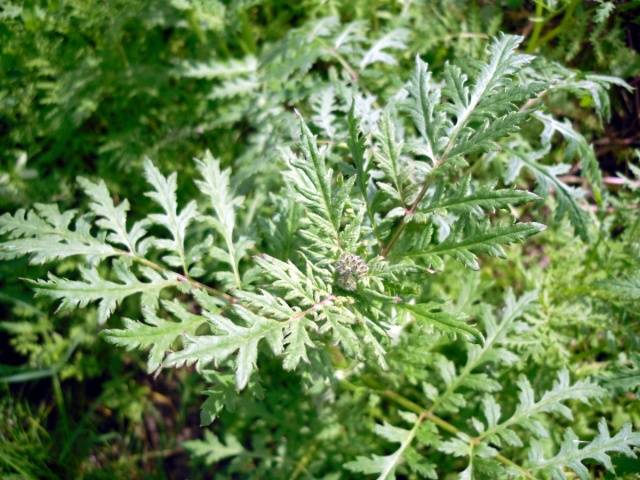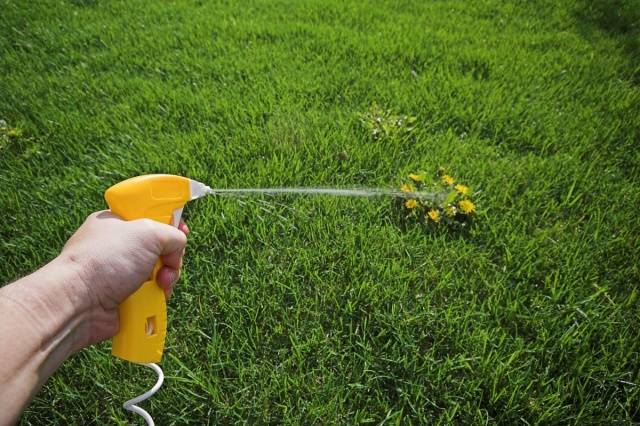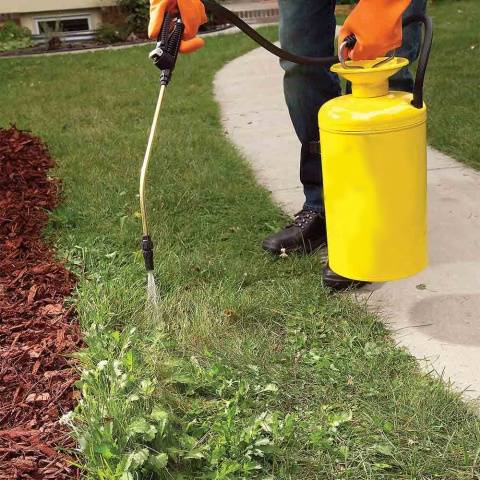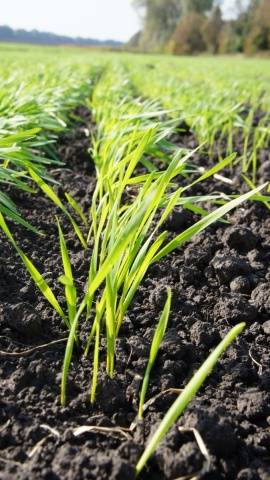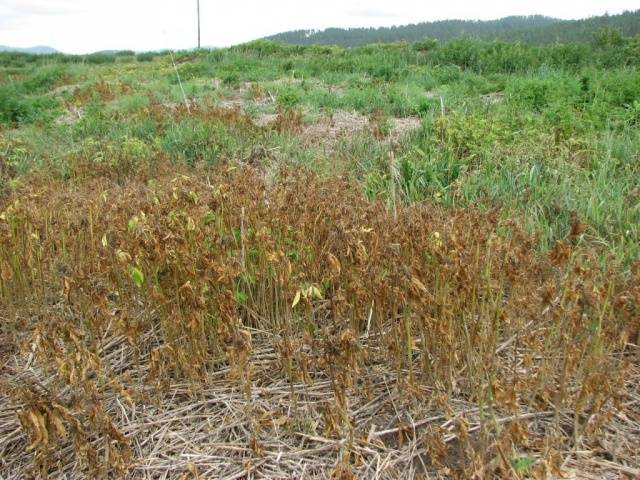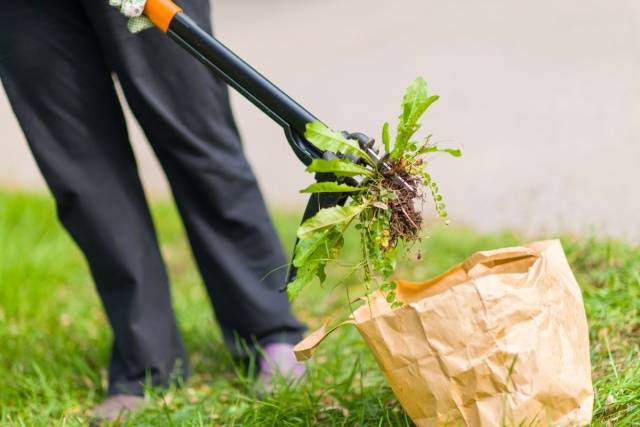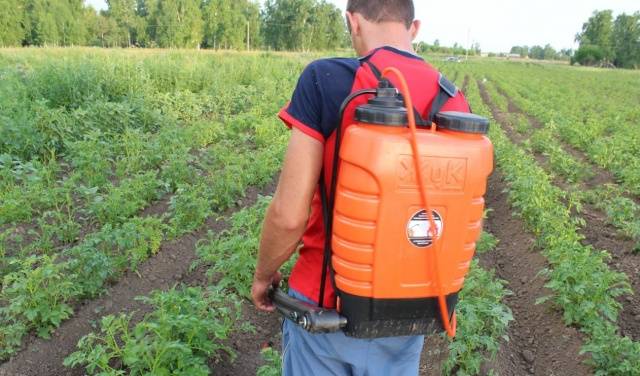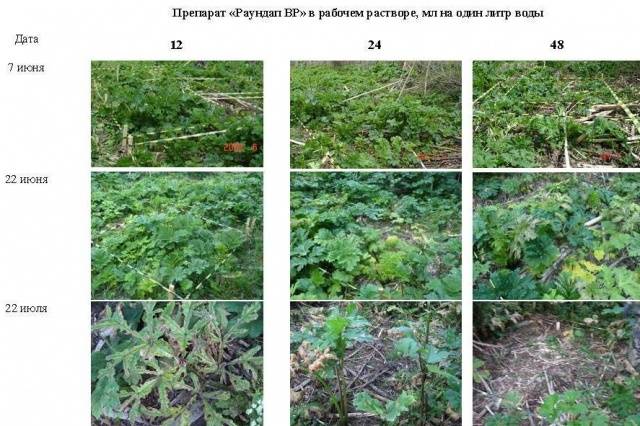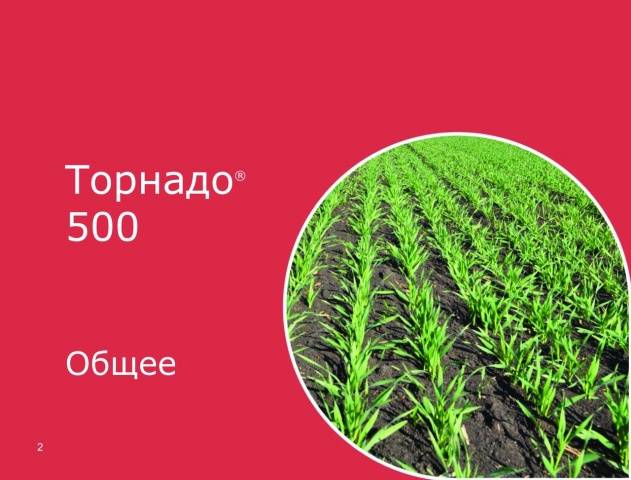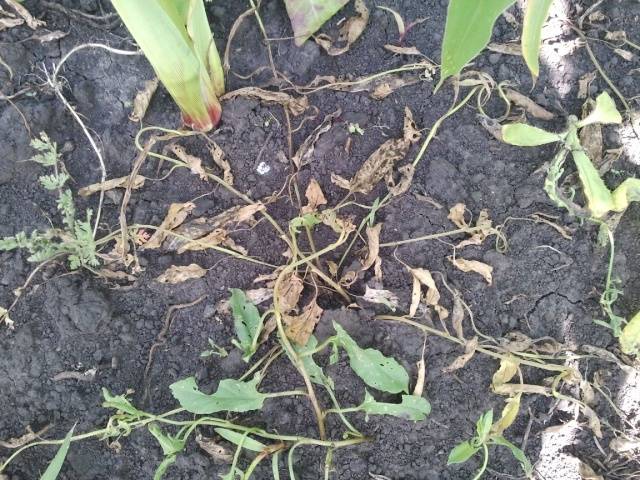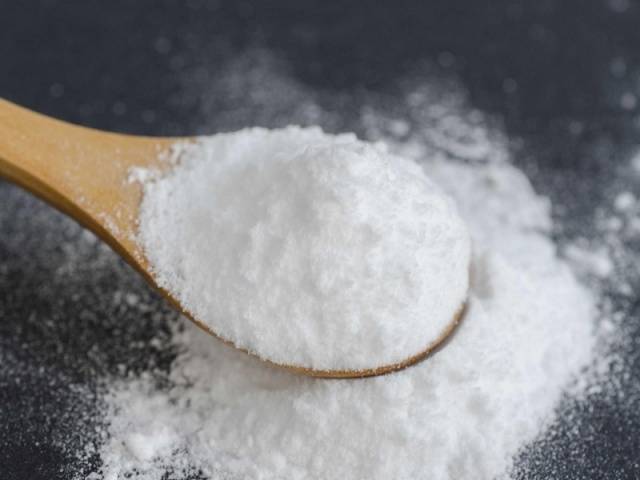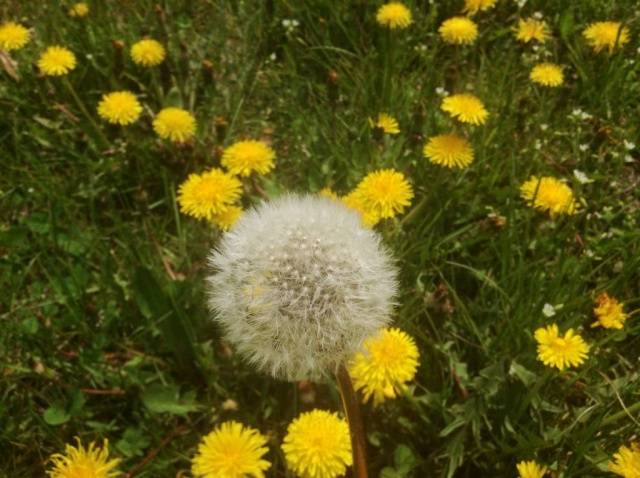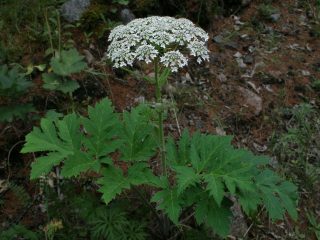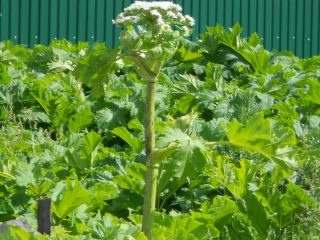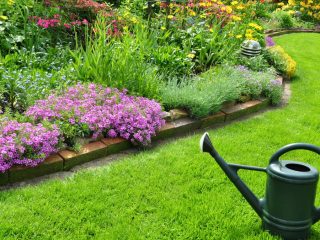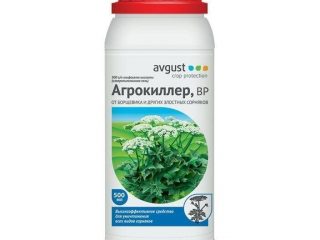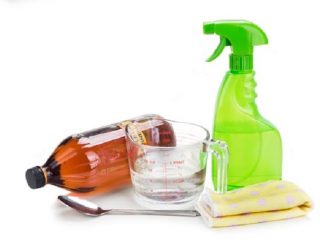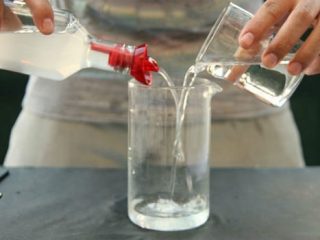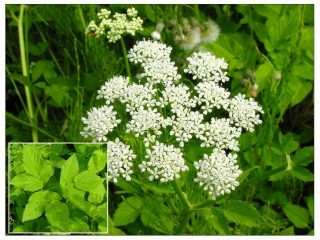Content
Fight against weeds in the garden is one of the most laborious activities. Many summer residents spend the whole summer in the beds, destroying weeds. To combat weeds, you can use different means: weeding, pulling out the grass with your own hands or using various mechanisms, mulching the soil. But the most effective remedy from weeds in the garden - herbicides.
How to use chemicals to kill weeds, which weed killer is the most effective and safe for humans - this is the topic of this article.
How to control weeds in the garden with herbicides
To fight weeds in the garden in a modern way means to use special chemicals for this.... If earlier against weeds people used only hoes and their own hands, but today herbicides have come to the aid of gardeners.
A herbicide is a chemical solution that fights weeds. The active ingredients of these agents can be different, but most herbicides are made on the basis of isopropylamine salt.
All herbicides fall into two broad categories:
- Means of continuous action.
- Selective drugs.
The first group of chemicals is capable of destroying absolutely all vegetation in the treated area, that is, herbicides of continuous action kill not only weeds, but also cultivated plants.
Means, acting selectively, have a composition that fights only with specific herbs, while practically not affecting the development of garden crops.
Besides, There are three groups of weed control chemicals:
- systemic remedies for weeds in the garden - destroying all parts of the weed: root, stems and leaves;
- contact the funds affect only that part of the plant with which they came into direct contact (for example, the aerial part of the weed dies after processing the site);
- soil the funds are aimed at destroying weeds through the root, and these herbicides also kill weed seeds in the ground.
If the instructions for use of the drug, its dosage and processing rules are followed, the poison will not penetrate the fruit.
How to properly destroy weeds in the garden using chemicals
Chemistry kills weeds very effectively - this is the most effective control method today. But in order not to cause harm, you must be able to use herbicidal products.
It is not always necessary to use a chemical method of struggle, but only in especially severe cases:
- when an area prone to erosion (such as a hillside) is being cultivated and mechanical weeding may compromise the integrity of the soil;
- if there is too much weed, and it is not possible to cope with it manually;
- the use of chemicals is justified to combat poisonous plants (such as hogweed, eg);
- if you need to remove weeds from large areas or fields.
Effective processing in the country should consist of several stages:
- Spring irrigation of the soil.Immediately after digging, the soil is treated with soil herbicides, which are capable of neutralizing seeds and destroying weed root shoots.
- Young weeds are easier to harvest, especially since it needs to be done before the grass has dropped the seeds. If you have time in time, you will be able to get rid of weeds on the site even before planting cultivated plants.
- If weeds still sprout between crops, it is necessary to use selective agents that act on specific plant species.
- During the period of flowering or ripening of fruits of garden crops, it is preferable not to use chemical agents, since there is a high risk of their accumulation in vegetables and berries. In this case, it is better to use preparations for weeds that stop their development - when the weed begins to grow again, the cultivated plant will already be mature and strong. Such herbicides act more carefully, as they have a lower concentration of chemicals.
But not all crops are able to grow in such conditions, therefore the most reasonable method of control is combined weed control in the summer cottage (mulching, weeding, mechanical removal and chemical means).
The better to remove weeds from the site
If you have already figured out how to destroy weeds correctly, then now it is worth talking about which means is better to use for effective control.
All chemicals are good in their own way: even the most ineffective of them have their advantage - they have less effect on cultivated plants and do not harm health.
The best herbicides will help to qualitatively remove weeds from the garden:
- Roundup. The main advantage of this product is that it is harmless to humans and pets. Along with this, Roundup is considered one of the most powerful weed-fighting drugs. The agent is systemic, that is, it penetrates into all parts of the weed, causing their destruction and death. At the same time, the herbicide does not accumulate in the soil, therefore it cannot harm the fruit. It is best to use Roundup in the spring, before sowing or planting crops. Vegetables or cereals can be planted in cultivated land immediately after chemical treatment. With the same effect, "Roundup" kills annual and perennial weeds, and it is also treated with particularly difficult areas with poisonous plants, such as Sosnovsky's hogweed, for example. Under the influence of the agent, the production of amino acids in the weed grass is disrupted, the treated plants completely die within 7-10 days after using the Roundup. It is better to remove green plants before their height has exceeded 15 cm. It is better to fight with taller shrubs "Roundup" in the second half of summer or to introduce this remedy in the form of an injection into the weed stems. The herbicide is active against burdock, dandelion, hogweed, horse sorrel, sow thistle, wheatgrass and other weeds.
- "Tornado". This tool is often used to treat gardens, vineyards, lawns. The herbicide belongs to continuous action preparations, actively destroys both annual and perennial crops. Help "Tornado" can in the most difficult cases, for example, when you have to fight with cattail, wheatgrass, reeds or reeds. It must be remembered that “Tornado»Kills not only weeds, but also garden crops, so the treatment is best done before planting. Already green pests die due to the penetration of the agent into the capillaries, this takes about three hours. The grass will completely die in 7-10 days. If you use the product in accordance with the instructions, you can not be afraid of its toxicity. The strengths of "Tornado" are as follows: it is not absorbed into the ground, is not dangerous for bees and animals, is active against 150 weed species... It is possible to process this tool between rows, land around grapes or under trees, use "Tornado" in autumn or early spring for soil cultivation.
- Hurricane Forte. This drug is of continuous action, destroying absolutely all vegetation on the site. It is used for weed removal on undeveloped plots, cultivating land near greenhouses, as a preparation before planting a lawn or as an autumn prophylaxis for a vegetable garden. The agent is absorbed into all parts of the plants, after 2-3 weeks the grass dies. You can not mow the grass before treatment with "Hurricane" and weed the garden after exposure to this drug.
- «Glyphos» is an aqueous solution of glyphosate, which, in turn, actively exterminates both annual and perennial weeds. The remedy works by stopping the production and assimilation of amino acids by the grass, as a result of which the plants dry out and die.
- "Lapis lazuli" mainly used for processing potato beds. The tool destroys weeds well, practically without affecting the potatoes themselves. The only thing is that the tubers will need about three days to recover. Within two months, the grass on the site will not grow.
- "Agrokiller" can be used in the most difficult cases. The tool destroys absolutely all weeds, it can also treat bushes (for example, remove raspberries or cherry sprouts from the site).
It is clear that drugs based on chemical compounds cannot be absolutely safe. In addition, such funds cost money - you will have to spend a lot on processing large areas.
Folk remedies for weeds
Homemade "chemistry" is more harmless, and such herbicides can be prepared from improvised means without spending on the purchase of ingredients. Folk remedies fight weeds a little worse than purchased chemicals. If you use them on time and periodically repeat the treatment, you can significantly increase the number of neutralized weeds.
You can prepare the following compositions at home:
- in 400 ml of table vinegar (9%), add 2 tablespoons of freshly squeezed lemon juice. About 30 ml of alcohol and a couple of teaspoons of dishwashing liquid are poured there. Now everything is thoroughly mixed and diluted with water in a ratio of 1: 2 or 1: 3. The liquid should be poured into a plastic spray bottle and the weeds should be treated on the plots. It is impossible for the composition to fall on cultivated plants, otherwise they may also die.
- You can use regular table salt to remove grass from unused areas. Prepare a very strong salt solution using hot water. This tool is used to treat grass, tree stumps, shoots, shrubs. It is necessary to first wet the plants with brine, then sprinkle them with dry salt, and then re-irrigate.
- Simple boiling water can also help fight grass. A large pot of boiling water should be poured directly onto the weed bush. The plant will die instantly, and in order to prevent its appearance again, it is necessary to mulch this place with large sawdust, black film or stones.
In order for weed control to be as effective as possible, it is necessary to use herbicidal agents in the first phase of grass development - then the cultivated plants will have time to grow and outstrip the weeds in growth.
You can protect yourself from chemicals in fruits if you stop killing weeds with herbicides 45 days before the harvest ripens. In such vegetables, even laboratory examination will not detect toxic or hazardous substances.
For more information on how to remove weeds from the garden using herbicides, the video will tell:
